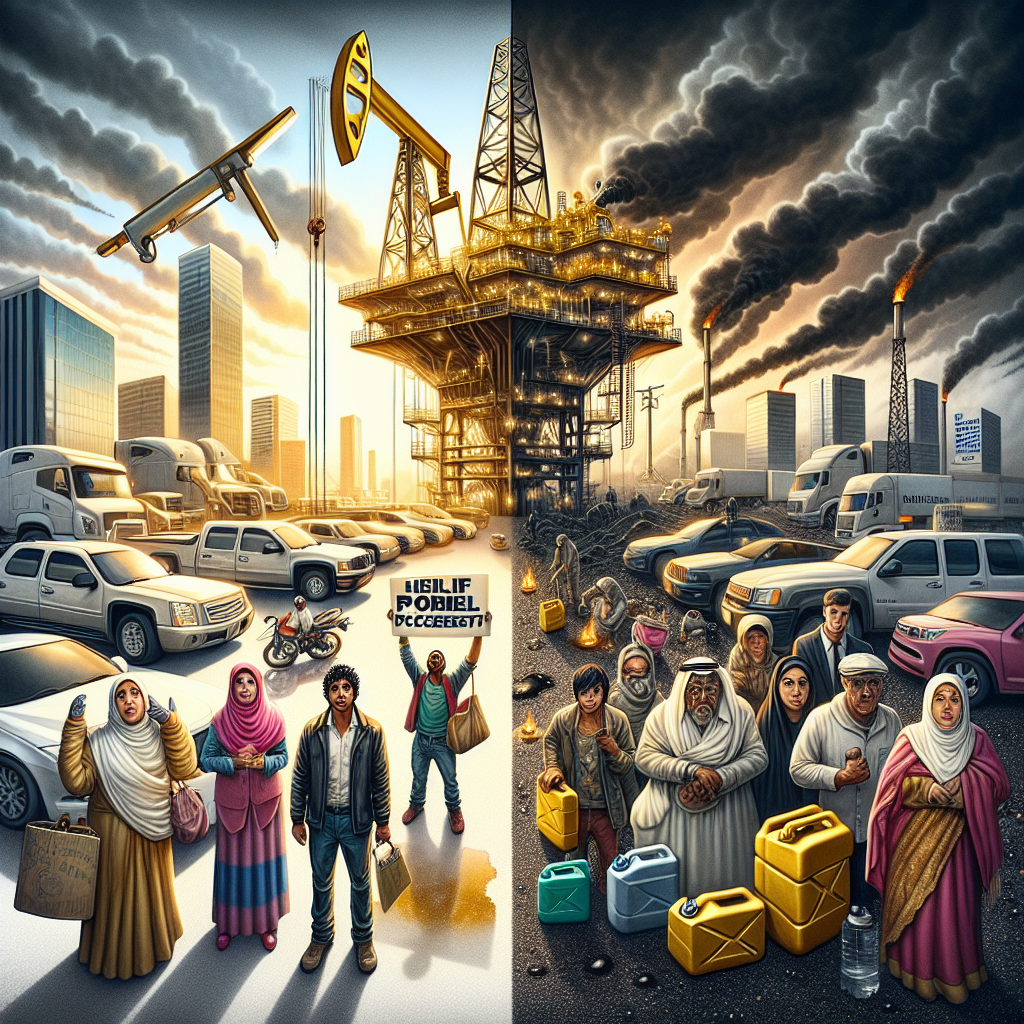Listen up, the truth’s about to drop, and I don’t sugarcoat.
Angola, oil-soaked and scandal-drenched, is once again strutting its paradox down the world stage. It’s the kind of headline that makes the IMF write research papers and makes the people write eulogies: “Africa’s third-largest oil producer faces deadly unrest over fuel price hikes.” Translation? The elites are gassing up their Range Rovers while everyone else is cooking with rage and hoping their children eat something other than disappointment.
This isn’t just another developing-nation sob story, folks. No, no. This is a masterclass in how to botch the blessings of black gold. Angola is sitting on an oil reserve so rich, you’d think the streets would be slick with prosperity. But instead of wealth trickling down, it’s been hoarded in high-rises and offshore accounts so far removed from Luanda, you’d need Elon Musk’s Starlink just to download the bank statements.
Now let’s be real: the critics are howling, but the government’s response is more tone-deaf than an off-key national anthem. They claim that fuel subsidy cuts are necessary for “economic reform.” Ah yes, the classic austerity dance: choke the poor, bless the rich, and call it fiscal responsibility. I’ve seen more convincing excuses from toddlers caught in candy jars.
Here’s the power play: Angola’s ruling class sells oil like it’s a golden ticket to luxury, while the average citizen’s reality is dust, hunger, and the faint hope that tomorrow doesn’t come with another price hike. You’d think that with billions flowing in, a little would trickle into schools, roads, or even just fully stocked grocery stores. Nope. What Angola has instead is the political equivalent of a leaking barrel labeled “progress.”
And don’t go thinking this is unique. Angola’s script has been photocopied across the developing world: extract wealth, export loyalty, import chaos. Whether it’s Nigeria, Venezuela, or Equatorial Guinea, the oil curse isn’t a myth—it’s a system. And Angola, right now, is its poster child.
The people are pushing back. Protests are erupting, tempers are flaring, and the response has been—you guessed it—deadly. The state’s message is loud and clear: “We will privatize the profit, and publicize the pain.” When voices rise, the batons fall. When crowds gather, the bullets reply.
But you know what’s wild, even poetic, about this whole mess? The vast majority of Angolans have never seen an oil rig outside of a documentary. They’ve never smelt the crude. They’ve never cashed a dividend check or been invited to a boardroom. They only know oil from the price it sets on bread and on blood. The fuel doesn’t fuel their dreams—it burns them.
So here’s my unfiltered take for those still sipping the government Kool-Aid: Angola isn’t broke. It’s mismanaged. The problem isn’t low oil prices—it’s low political will. It’s not about economics—it’s about ethics. And if your leadership drives Bentleys while your people walk barefoot, that’s not governance—that’s gangsterism with a flag.
What Angola needs isn’t just reform—it needs an exorcism. Of corruption. Of cowardice. Of the idea that natural resources are a prize for the powerful, not a promise to the people.
The game’s on, Angola. And the only way to win now is for the people to rewrite the rules.
Catch my drift?
– Mr. 47







